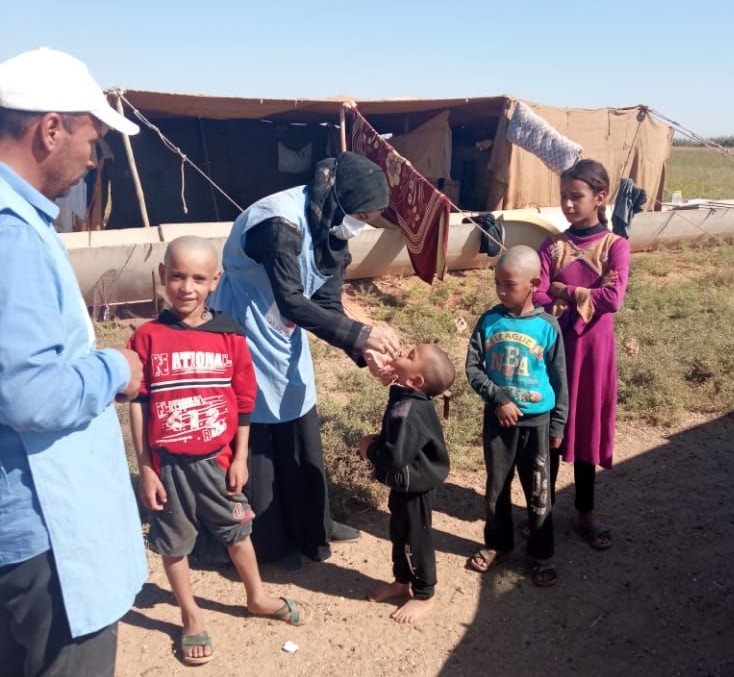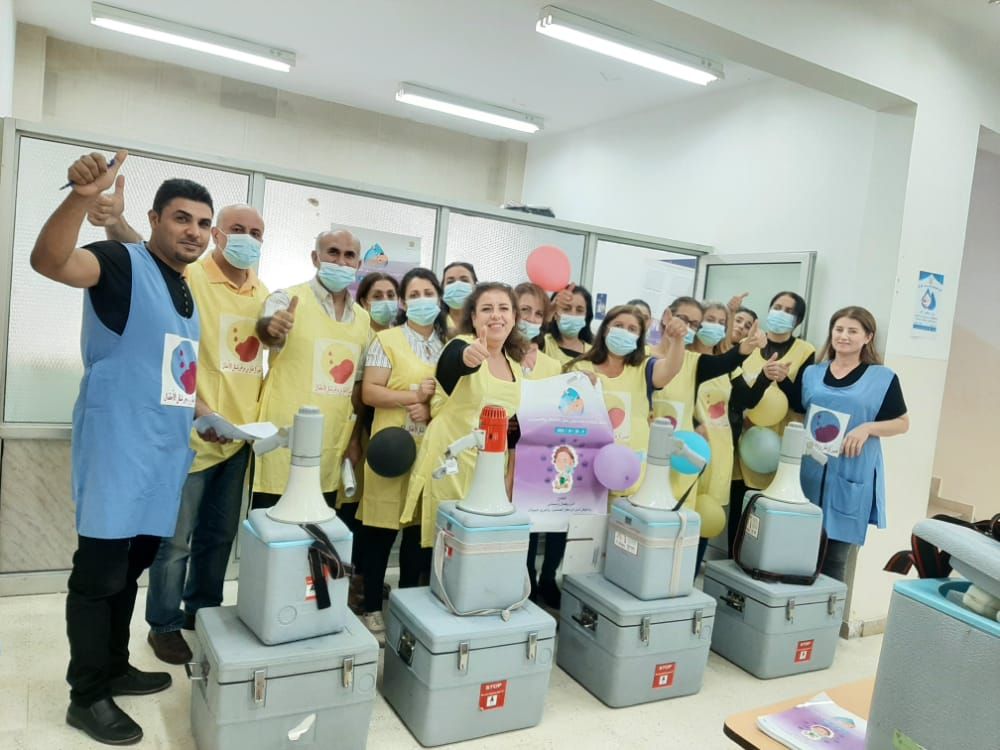 12 October 2022, Damascus – With support from WHO, UNICEF and Gavi, the Vaccine Alliance, the Ministry of Health in Syria has launched a polio, measles and rubella vaccination campaign across the country. The 10-day campaign, which began on 9 October 2022, aims to vaccinate 2.4 million children under the age of 5 in all Syrian governates, regardless of their vaccination status, with a special focus on camps and informal settlements.
12 October 2022, Damascus – With support from WHO, UNICEF and Gavi, the Vaccine Alliance, the Ministry of Health in Syria has launched a polio, measles and rubella vaccination campaign across the country. The 10-day campaign, which began on 9 October 2022, aims to vaccinate 2.4 million children under the age of 5 in all Syrian governates, regardless of their vaccination status, with a special focus on camps and informal settlements.
“Keeping Syria polio-free has been a major priority over past years for WHO and partners, and we are exerting all efforts to maintain this achievement,” said Dr Iman Shankiti, WHO Representative in Syria, adding that, “The measles and rubella campaigns are equally important to prevent the occurrence of any outbreaks, increase the immunity of children under 5 years, and minimize the risk and exposure to measles, which began showing rising trends of late.”
Despite the socioeconomic challenges facing the country, more than 1034 health facilities and 793 mobile medical teams, supported by nearly 9500 health workers, are being mobilized to reach all children, especially in hard-to-access and remote areas.
WHO-supported vaccination mobile teams are also present in camps and informal settlements – particularly in northeast Syria – targeting over 28 000 children under 5 every 1-2 months. In 2021, 2 vaccination campaigns were conducted through a national immunization week, while another campaign in 2022 reached around 775 651 children under 5.
Prior to the campaign, WHO backed the Ministry of Health with planning, supervision, and capacity-building training to equip the health workers with updated information and guidance. WHO is also covering the campaign’s operational costs of transporting both the vaccines and the vaccinators. After the campaign, WHO will provide the needed support for the independent post-campaign evaluation.
“Despite the many challenges on the ground, WHO is working closely with all partners to ensure the sustainability of the Expanded Programme on Immunization activities so that every last child in Syria is protected and vaccinated,” Dr Shankiti said.
In 2022, the number of confirmed measles cases increased from 22 to over 100 cases due to the accumulation of susceptible children who hadn’t received routine vaccines. WHO is supporting 210 mobile teams, and more than 80 outreach sessions for remote areas, targeting about 48 000 children every month.
Since the conflict erupted in Syria more than a decade ago, humanitarian needs have continually increased, with new complexities adding to the burden of the Syrian people – already fatigued by the ongoing crisis and disease outbreaks. Now, more than ever, the children of Syria need our support to ensure the continuous implementation of immunization activities so that no child is at risk of vaccine-preventable disease.



